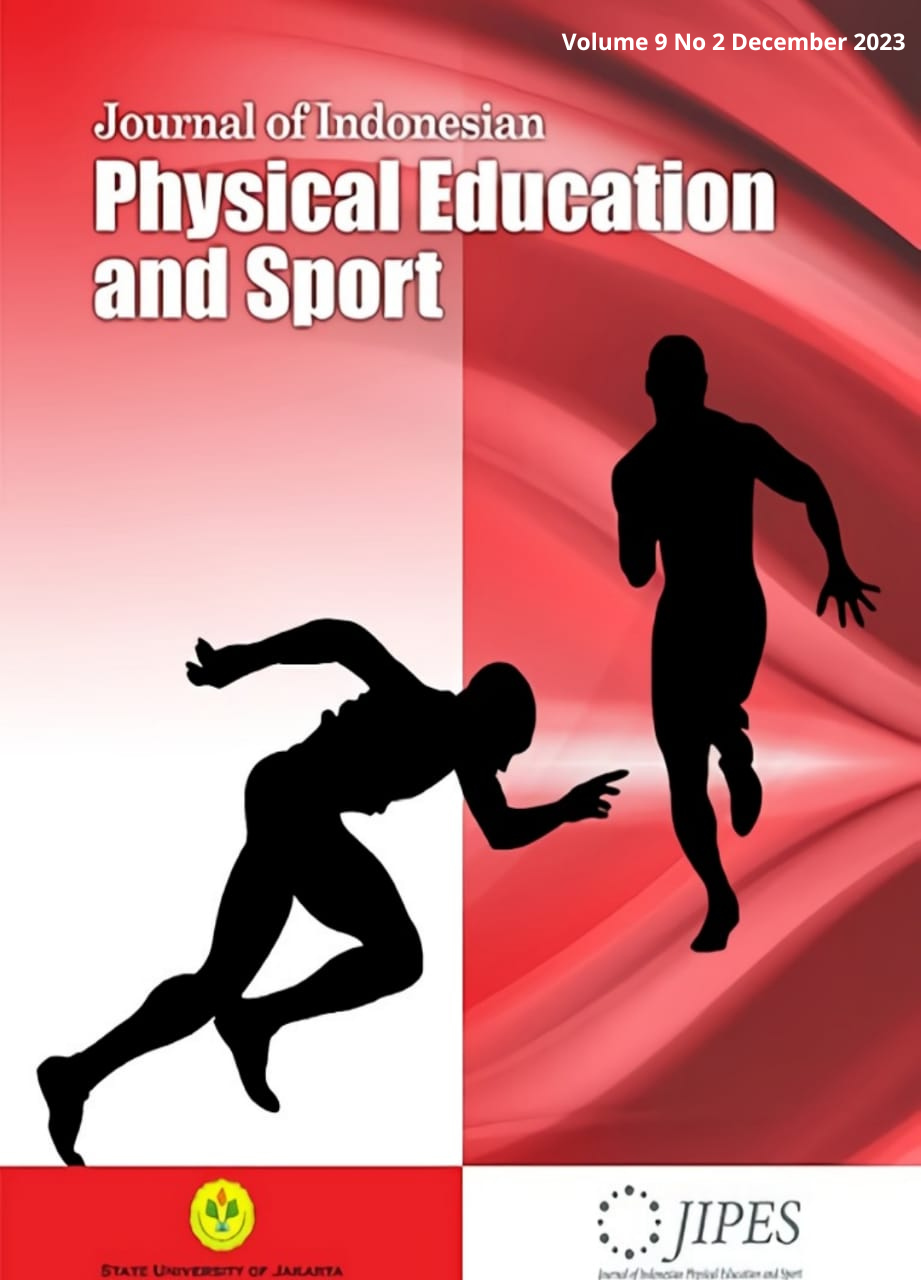The Effect of Three Block-Pedal Angles on Kinematics of the First Contact during a Sprint-Start Performance
DOI:
https://doi.org/10.21009/JIPES.092.01Keywords:
Block-pedal angle, lower limb kinematics, Sprint-start performanceAbstract
Athletes have considerable freedom in altering the block spacing and block obliquity to personalize it to their convenience, they have relied on experience to develop the bock configuration of their preference. There is little research exploring this area and is therefore worthy of scrutiny. So the objective was to test if the alterations in the block-pedal angles continue their effect until the First step in a sprint start performance.2-D videography method was used to study the sprint start performance of five highly trained athletes. One-way ANOVA was used to determine the deference in lower-limb kinematics at the first contact at various block angles. The results showed no statistical difference between the kinematics of the lower limbs at the initial contact at various block-obliquities. The study concluded that there was no measurable difference in the kinematics at initial contact of highly trained athletes.
References
Bezodis, N. E., Salo, A. I., & Trewartha, G. (2015). Relationships between lower-limb kinematics and block phase performance in a cross section of sprinters. European journal of sport science, 15(2), 118–124. https://doi.org/10.1080/17461391.2014.928915
Bezodis, N. E., Trewartha, G., & Salo, A. I. (2015). Understanding the effect of touchdown distance and ankle joint kinematics on sprint acceleration performance through computer simulation. Sports biomechanics, 14(2), 232–245. https://doi.org/10.1080/14763141.2015.1052748
Ciacci, S., Merni, F., Bartolomei, S., & Di Michele, R. (2017). Sprint start kinematics during competition in elite and world-class male and female sprinters. Journal of sports sciences, 35(13), 1270–1278. https://doi.org/10.1080/02640414.2016.1221519
Coh, M., Peharec, S., Bačič, P., & Kampmiller, T. (2009). Dynamic factors and electromyographic activity in a sprint start. Biology of Sport, 26, 137-147.
Guissard, N., Duchateau, J., & Hainaut, K. (1992). EMG and mechanical changes during sprint starts at different front block obliquities. Medicine and science in sports and exercise, 24(11), 1257–1263.
Han, J., WADDINGTON, G., Anson, J., & Adams, R. (2015). Level of competitive success achieved by elite athletes and multi-joint proprioceptive ability. Journal of Science and Medicine in Sport, 18(1), 77-81. https://doi.org/10.1016/j.jsams.2013.11.013
Hussain, SMH., Deol, NS., Singh, L.(2019). Kinematic patterns of start in track and field sprints. Review of research.8(4), 0-10.
IAAF. (2008). http://www.iaaf.org
Mero, A., & Komi, P. V. (1990). Reaction time and electromyographic activity during a sprint start. European journal of applied physiology and occupational physiology, 61(1-2), 73–80. https://doi.org/10.1007/BF00236697
Mero, A., Kuitunen, S., Harland, M., Kyröläinen, H., & Komi, P. V. (2006). Effects of muscle-tendon length on joint moment and power during sprint starts. Journal of sports sciences, 24(2), 165–173. https://doi.org/10.1080/02640410500131753
Schrödter, E., Brüggemann, G. P., & Willwacher, S. (2017). Is Soleus Muscle-Tendon-Unit Behavior Related to Ground-Force Application During the Sprint Start?. International journal of sports physiology and performance, 12(4), 448–454. https://doi.org/10.1123/ijspp.2015-0512
Tellez, T., Doolittle, D. (1984) Sprinting from start to finish. Track Technique, 88, 2802-2805










 </a > a
</a > a 